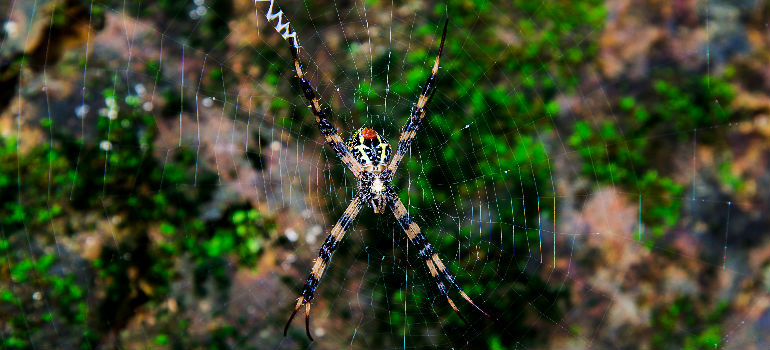
We’ve all heard the unsettling statistic that the typical human being swallows eight spiders annually while they’re asleep. Do you eat spiders in your sleep, though, or is this another strange myth? Although it is frightening to consider eight-legged creatures crawling inside your mouth, it is extremely rare.
But it doesn’t mean they can’t go into other areas, like your ears, which may be even scarier to think about. Let’s check the reality of this widespread fear and determine whether you need to be concerned about unexpected spider visitors while you sleep.
Table of Contents
Meet the Spiders
There are about 40,000 types of spiders in the world which can be found on every continent except for Antarctica (so if you can’t deal with arachnids, check the property listings there). What is curious, though, is that their existence dates back to 318 million years. Since then, the eight-legged creatures have become established in nearly every habitat, with the exceptions of air and sea colonies.
But what attracts spiders to your house?
Well, like any other creature, spiders are looking for food and shelter. The corners, crevices, and dark less-used spaces in your house are the perfect locations for them to find privacy. When it comes to food insects like drain flies, crickets, mosquitoes, fruit flies, cockroaches and earwigs, clothes moths are considered the best entrée a spider can get.
If Eating Spiders in Your Sleep Wasn’t a Myth
Many people are scared and worried about how many spiders they eat in their sleep. Let’s just assume for a second that swallowing 8 spiders annually was actually possible. What would that mean?
- This means, on average, we would all consume 0.02 spiders per day;
- According to Worldbank.org’s statistics from 2014, the normal life expectancy in the UK was 81 years. Following this logic, an average Brit would be swallowing 648 spiders during his lifetime.
- The average weight of a house spider is 0.2 pounds or 90 grams. This equals exactly 16.2 pounds or 7.3 kilograms of spiders passing through the body of an average person.
If the above statistics sound as unlikely to you as they do us, rest assured, you are not swallowing spiders in your sleep after all!
If it is not a myth you can get rid of the spiders
Book a professional pest control service if there are too many spiders in your property, just to be on the safe side and avoid midnight snacks.
Call usScientifically Impossible
The anatomy of spiders includes many characteristics that would make the chance of swallowing a spider in your sleep impossible. However, if this happens, it would be extremely accidental. Spiders are known for their well-developed instincts and survival capabilities. No wonder they have thrived in almost every corner of the globe.
Spiders are not stupid, and they won’t decide to end their life by crawling into a human’s mouth during the night. Also, bear in mind that you are enormous for spiders and they are scared of you as well. They will never bother you if you don’t threaten them.
Chemoreceptors
Along the legs of spiders are chemoreceptors. Their functionality is to avoid predators and to seek out prey but also allowing to sense a number of chemicals. Because of their poor eyesight, spiders rely instead on touch, vibration and taste stimuli to navigate and find their prey.
When a spider comes too close to a human mouth, the chemoreceptors will help him to sense the many thousands of different exhaled chemicals. A spider would be able to understand that danger is nearby and would choose to move in the opposite direction rather than crawling into the massive CO2-exhaling “human cave”.
Human’s Sleeping Position and Habits
During sleep, people move a lot, also our breathing habits will deter a spider from crawling into our mouths. Even snoring and farting (we all do it at least sometimes) creates sounds (vibrations) in the air that can be sensed by some spider species with the help of their hairs.
Most people sleep instinctively on their side or their front. Sleeping on your back is quite unlikely, meaning a spider must do its best to actively crawl into your mouth. Add that with the fact that spiders don’t have good eyesight (besides having up to eight eyes) makes it even harder to believe that 8 of them could accomplish the journey to your mouth for a year.
Furthermore, when you are asleep, your mouth is not gaping open. According to statistics from the American Academy of Sleep Medicine, your mouth rarely opens more than 25% of its fully open position during the sleep process. That percentage of the gap is quite small for a spider to crawl into or even to accidentally fall into your mouth. So there is nothing to worry about because it’s very unlikely that a spider would end up in your mouth.
Moreover, in your sleep, you don’t swallow because facial muscles are relaxed. This is the reason why most people wake up with saliva in their mouths. But to get it swallowed, that person needs to be in consciousness, i.e., once he wakes up, the saliva gets instantly swallowed.
Do It Yourself
If there is still anyone who doubts that it is possible to swallow spiders while sleeping, try the following. Put your finger in someone’s mouth as they sleep. Are you wondering what will happen? It’s far more likely for the person to wake up and knock you down rather than trying to swallow your finger.
Wait a Second, It’s True!
Although swallowing spiders in your sleep is impossible, that doesn’t mean you don’t have any parts of spiders going through your organism.
Did you know that whatever you buy at the store or market, especially processed food will have teeny tiny quantities of insect parts? This is because crops always have and always will have insects on them. Doesn’t really matter where they came from or how they were grown, your body will still gain some proteins from insect parts.
After all, insects are edible and tiny parts won’t prove to be harmful to humans but still don’t belong, so regulatory agencies like the U.S. Food and Drug Administration place limits on how many insect parts different food items can have. These are the Food Defect Action Levels, for “Levels of natural or unavoidable defects in foods that present no health hazards for humans”.
Are you dealing with a pest infestation?
You don't have to be alone in the battle against pests. Hire a professional pest expert!
Call usHow a Spider Is Beneficial to Your House
Many people are afraid of spiders. Well, finding them not very attractive is quite normal, but they are actually really helpful. Spiders could even be considered by our friends. Believe it or not, there aren’t any better alternatives to your spider pest control specialist than the “natural pest control master” – The House Spider. The average house spider eats about 2,000 insects every year; that includes mosquitoes, silverfish, flies and all the other things that come crawling into your house.
There is Nothing to Be Worried About
Although it is possible for a spider to get into your mouth by accident—possibly from a web above your bed—the likelihood of this really occurring is extremely slim. Avoiding people is significantly more important to spiders than getting into their mouths.
So, do you eat spiders in your sleep? Practically speaking, the answer is no. You can rest easy tonight knowing that this common fear is nothing more than a myth, and you’re highly unlikely to have any nocturnal spider snacks while you snooze.
Image source: All Around Photo/shutterstock.com

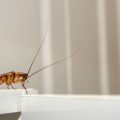


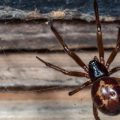
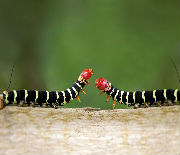
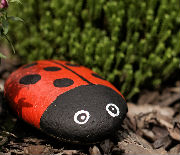
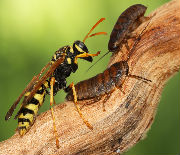
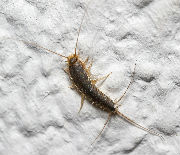
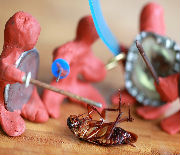
Thank you.I am afraid of arachnids so this really helped me.I am scared my house spider will crawl in my mouth everyday and I’ll accidentally swallow it.Thank you so much,because of you I’m not scared of it.Have a nice day,Bye!